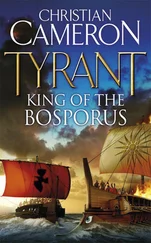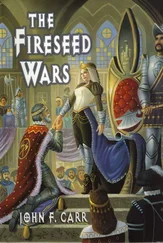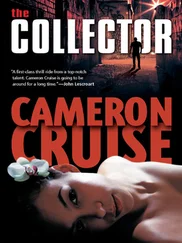That night Will and I stayed up late. Will had dragged his mattress across the hallway to my room, where it rested on a couple of wooden crates our father had salvaged from a food drop. The two beds made a kind of giant spongy stair. I was on the top step, and Will was one below. We had two covers, both of which I tugged more closely around me. Will complained, but he gave up as soon as I told him about Kai.
“He must be rich,” Will concluded.
“He is,” I said. “And Will…” I waited until I had his complete attention. “After the bus came, they picked him up in a limo.”
“Who picked him up?”
“I don’t know. There was a guard with a gun.”
Will squinted with his left eye. I always thought it was unfair that I got our mother’s freckles, while Will had our father’s witch-hazel eyes: pinwheels of green, gray, and gold. When he squinted, it was like peering into the glass end of a kaleidoscope.
“His father must be a WAB minister, maybe.”
“There are no WABs here,” I reminded him.
“He could live in Basin.”
“Then why would he be out walking on our road?” I asked.
If the boy’s father were on the Water Authority Board, he wouldn’t live in the Wellington Pavilion, as nice as it was, and he wouldn’t be outside walking. There were places a lot nicer, and a lot more expensive, with better security. Most of the WAB ministers lived in Basin, the capitol, about sixty kilometers away. The Water Authority controlled the flow and distribution of water and was the closest thing we had to an actual government. Our republic—Illinowa—was all that remained of the Midwestern pieces of the old United States, and the only thing left to govern was water. The decisions made by WABs in Basin could mean life or death for the rest of us. I’d never been to the city, but photographs showed leafy trees growing from beneath semi-porous grates and real grass in the park. Everything seemed to be breathing, and the air was gauzy with moisture.
“He must live around here,” I decided. “He says he does.”
“We should invite him to dinner.”
“We don’t have any food.”
“That’s not true.”
“Synth-food’s not food,” said Will. “And Dad is a terrible cook.”
“He doesn’t have time to make a real meal.” I hated when Will criticized our father’s cooking. “Anyway, I don’t mind synth-steaks.”
It was months since we’d eaten anything except the synthetic food the Water Authority Board provided in weekly food drops. They claimed it tasted like the real thing, but of course it didn’t. Everything had a sort of bland sameness. Steak tasted like chicken; orange juice tasted like tomato juice. The only real differences were the colors and textures. Still, people could get used to anything, and we did.
If Kai was rich, he didn’t act like it. Rich people lived in secure compounds with guards and robo-dogs and rarely left their buildings. When they did, they wore kev-jackets on the streets and carried laser-tasers or guns. In Basin they were permitted to shoot first if a stranger approached without identification. Even in Arch, where we lived, the occasional businessman was ferried about in an armored vehicle. You could never be too safe, or too protected. That’s what our teachers said. Men would kill for a glass of water, and did.
Will and I talked until the power grid shut down and the lights flickered, then went dark. He had a small glow light, but it wasn’t fully charged or bright enough for both of us to read by. The darkness settled. I felt myself growing weightless, thoughts flitting half-formed through my mind, pieces of one thing replaced by endings of another. I knew sleep was coming. In my dreams Kai offered me plastene cups filled with water, but I couldn’t drink them fast enough. The water tasted like graphite and made my mouth dry. I tried to tell him to stop, but he kept offering them and spilling what I couldn’t drink on the ground.
When I awoke, my blanket was bunched around my neck, and my hair was damp with sweat. Will was already downstairs, dry-showered and eating a bowl of Oatios in front of the wireless. I skipped the shower and grabbed a Toasty Bar as our father ushered us to the door.
“No time for texting,” he said.
I reached for a controller on the kitchen table.
“Signal’s out anyway,” said Will.
The wireless played a news feed about a pirate attack, and Will also had a couple of game channels open, but the wi-text screen was down. My father had explained that bandwidth and signal strength varied depending on the grid, but it didn’t seem a coincidence that propaganda and entertainment were always easiest to find while communication was more difficult. You could play YouToo! almost anywhere in the world, but sending a simple message across republics was unpredictable and sometimes impossible.
I hurried to follow Will and barely had time to finish my breakfast because he walked so fast.
We didn’t see Kai at the bus stop. We waited until the last possible minute, staring down the road in the hope that he would materialize out of the dust. Then the driver barked for us to get on board, and we scampered up the steps. The ride to school was agonizingly slow and bumpy. Though it was fall, it felt like summer, and the bus was hot and airless even with the windows cranked open. My lips were chapped, and I was thirsty already, but of course there was nothing to drink and there wouldn’t be anything until lunchtime. I licked my lips and plunged into the pages of my screen, where the seas were always blue and the skies heavy with thunder.
Our school was a one-story cinder-block building that looked as if it had once been larger. At each end the hallways simply stopped and were bricked off without windows or doors. The classrooms were overcrowded, and there wasn’t enough space in the gym or lunchroom for everyone to play or eat at the same time. Fortunately on most days one-quarter of the kids were sick or absent, which meant the school was nearly the right size for the rest of us. At least there were enough chairs in my class for everyone to find a seat.
The school’s venti-unit blew at full power. I could feel the air coursing over my head like a current as I walked down the hallway. It was crackly and dry, alive with static electricity. The unit was supposed to filter dirt and chemicals, but it made the air taste like something metallic. The teachers kept the windows open anyway, because the school was so hot.
I found my class and sat at my usual seat near the window. The other kids chatted noisily and tossed things at each other while I opened my screen and adjusted my pen-writer. A boy named Ryark tried to get my attention by tapping my shoulder with a calculating stick. He had hair that stuck up like a toilet brush. I ignored him. When the teacher arrived, Ryark sat back quickly in his seat, and the class quieted down. No one dared aggravate the teachers, who freely dispensed electric zaps with a battery-powered teacher’s aid.
We were doing a unit on weather. Mrs. Delfina used her laser pencil to show how the jet stream carried storm systems from west to east. Variations in Earth’s temperature made the jet stream dip and twist, curving north when it should be headed east. This made it snow where it should be warm and brought rain to the colder regions. Predicting weather, she said, was more art than science, because you had to take into account the changing temperature of the land and water and the competing forces of high and low pressure systems that jockeyed for position over the continent. Even the slightest variation could wreak enormous havoc.
“A butterfly beating its wings over Basin today,” Mrs. D. said, “can change tomorrow’s weather two thousand kilometers away.”
Читать дальше












